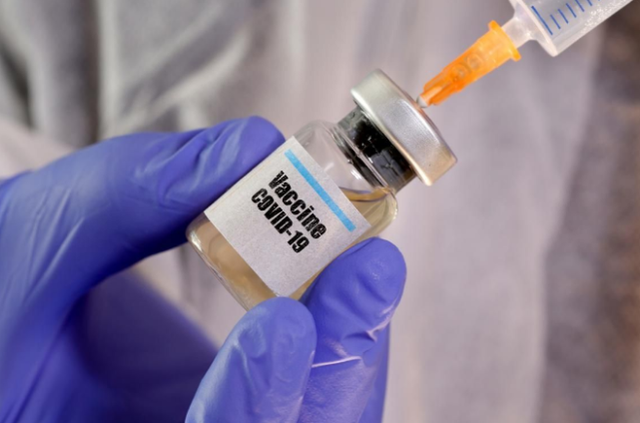Is China profiteering through a multilateral Covid-19 vaccine programme and pocketing US taxpayers’ money? That claim has been made by some American politicians and pundits, and it sounds like a juicy scandal – but is it the real story here?
Gavi, the global vaccine alliance, recently signed deals with Chinese companies Sinopharm and Sinovac to purchase their Covid-19 vaccines. This means securing up to 550 million doses for people around the world.
The doses will be circulated through the Covax Facility, the multilateral effort co-led by Gavi and the World Health Organization to ensure the equitable distribution of vaccines. The current goal is to deliver 2 billion doses worldwide in 2021, and 1.8 billion doses to 92 lower-income economies by early next year.
But the agreements have triggered immediate displeasure in some quarters in the US, and a drumbeat that, since China has not donated cash or vaccines to Covax, it should have provided the shots for free. Also, because Washington contributes financially to Gavi, it apparently means that US taxpayers are funding “Beijing’s scheme”.

First, let’s understand how Covax works. Before vaccines are included in the portfolio, they should be approved for emergency use by the WHO or WHO-recognised authorities. The shots are obtained through purchase deals, signed between Gavi and drug companies, not governments.
Previously, Gavi had signed such deals with producers of nine vaccines or vaccine candidates, including AstraZeneca/Oxford, Pfizer-BioNTech and Moderna. When Gavi signed up the Chinese companies after their shots were certified by the WHO in May and June this year, it was following standard practice.
Are the Chinese companies “profiteering” from the sale? A source familiar with the matter told me the shots are being supplied at a fraction of their domestic prices, about the same cost as some other vaccines. Plus, their easy storage requirements make them “highly suitable for low-resource settings”, according to the WHO.
Therefore, to claim that the Chinese government is profiteering from the deals is simply absurd.
The deals were made to look more egregious with allegations that the Chinese vaccines are subpar. Are they? They certainly meet WHO standards. In trials and actual use, both have proven highly effective in preventing severe cases and death.
A trial carried out by Sinovac in collaboration with the Brazilian city of Serrana, with a population of 46,000, speaks volumes. After nearly every adult was inoculated, the city became “an oasis of near normalcy”, in the words of an American news wire. The only critical case was an elderly woman who rejected the shot.
On the other hand, there are reports of infections occurring after inoculation with vaccines produced in other countries. The latest such high-profile case is the new British Health Secretary Sajid Javid. He tested positive after receiving two British jabs. I wish him a quick recovery.
Despite nearly 70 per cent of Britain’s adult population getting two doses, the country recently recorded 48,000 infections in a single day. Still, it would not be fair to discuss these shots as subpar, given the many factors at play, the biggest of which is the enigmatic nature of the virus.
I don’t mean to politicise vaccines, only to point out that there are distinct double standards in some quarters on vaccines and other efforts to control the pandemic, at a time when the world should be uniting to fight a common enemy.
Multiple foreign ambassadors to China told me they raced to secure shots from China because they were effective and available, with no strings attached (no legal immunity for drug makers, for example).
While you had to wait a long time to obtain shots produced in the European Union and US, due to their limited capacity and export controls, those made elsewhere were already saving lives.
By early July, Chinese companies had provided half a billion doses and concentrates to over 100 countries and international organisations. Among these, 80 countries received free shots.
Why has China yet to donate shots to Covax? Largely because the WHO authorisation came only recently. Now, with the Sinopharm and Sinovac vaccines certified, China will be in a position to contribute more.
In terms of cash, although China has yet to make a donation to Covax, it has given the WHO US$50 million to help fight the pandemic. To suggest that China is doing nothing on the multilateral front is misleading.
Now, ask yourself: when certified and affordable shots from China become available, should Gavi reject them, especially when the Delta variant is posing a rising risk to global health? Given that low-income countries are direly short of vaccines, what’s your answer?
It’s bad enough to allege that a Chinese scheme aims to profiteer from a pandemic. It’s worse to stoke a fear that China is pocketing US taxpayers’ money.
According to a senior US official cited in a recent opinion article in The Washington Post, it’s not US-donated money that is being used to pay the Chinese companies. “Gavi will not use funds attributable to US contributions to support the Sinopharm and Sinovac procurement,” the official said. Period.
While bashing China, these same people laud the generosity of US vaccine aid. But whichever country decides to act generously, it should be welcome. The goal is to protect disadvantaged people at the earliest.
It’s a pity that ideology and power politics come before human lives for some people, although they claim to defend human rights. For them, maintaining global dominance seems more important than distributing safe shots quickly. But misleading the public and fanning populist sentiment make matters worse.
Instead of any “scheme” by Beijing, it is such behaviour that lets down a pandemic-stricken world.
